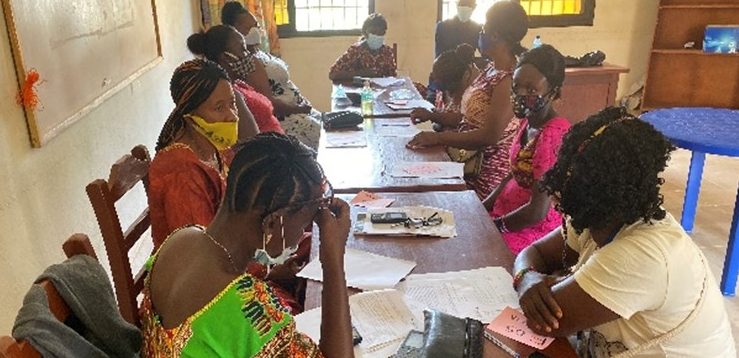
The gendered experience of close-to-community providers in Sierra Leone
Close-to-community (CTC) providers play an important role in community health service provision. This is particularly important in fragile and shock-prone settings, where they often link the most marginalised and hard-to-reach communities with the health system, a fact that has been demonstrated during the COVID-19 pandemic.
The COMAHS team’s research focused on community health workers (CHWs), a specific cadre of CTC provider in Sierra Leone. Their study explored the roles of CTC providers and their gendered experiences during the COVID-19 pandemic.
Download the brief summarising the work here.
The full report can be read here.
More on the study and its outputs here.
The study aims
1. To map out the range of close-to-community providers working in the COVID-19 response in Sierra Leone, their changing roles and how these are gendered.
2. To explore CTC providers’ gendered experiences in their interactions with the health system, communities and families and meeting the needs of vulnerable groups during the COVID-19 pandemic.
3. To explore key informant perceptions of CTC providers’ gendered roles and work in the COVID-19 response (at health system and community level), and the support that is provided.
4. To develop policy and practice recommendations on how to support CTC providers in the response to COVID-19 pandemic and other and future crises in ways that promote gender, equity and justice.